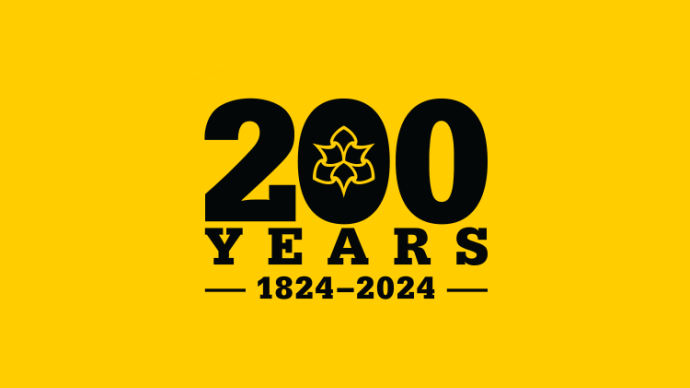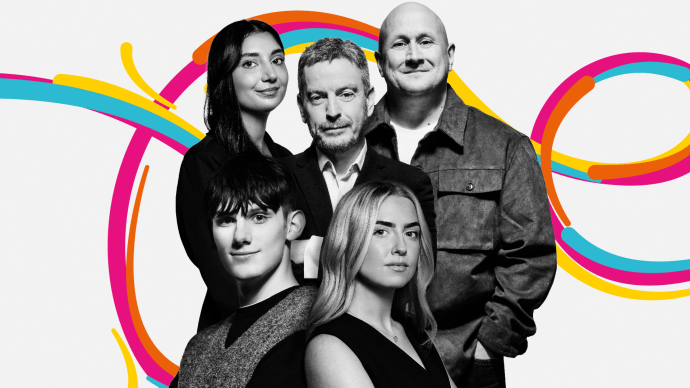Aquacheck: society-changing smart tech
Aquacheck: society-changing smart tech

About the 200 years campaign
As we celebrate 200 years of Manchester Metropolitan University, here we take a look at an example of how we share our knowledge to boost business performance locally, nationally and globally.
Discover an award-winning partnership built on trust and collaboration, the thrill of discovery, and the desire to make the world a better place for all with a revolution in the water industry.
The main story
Over three million litres of water are lost due to misuse and tampering every day – the equivalent of 1,180 Olympic swimming pools. Much of this wastage is due to the antiquated infrastructure of our water system.
Bamidele Adebisi, Professor of Intelligent Infrastructure Systems at Manchester Met, led an award-winning project to tackle such water wastage, which costs water providers huge sums.
Bamidele’s project, in collaboration with Aquacheck Engineering, has revolutionised one aspect of this infrastructure: the smart standpipe.
Standpipes allow water systems to be connected to hoses, like when firefighters need them. But unauthorised standpipes are sometimes used to steal water, which can cause low pressure and lead to water discolouration.
By taking a traditional standpipe and turning it into a smart, connected device, Bamidele has opened up new functionalities that may generate significant social and economic impact – beginning with identifying the sources of leaks.
A local partnership
Aquacheck Engineering is a technology firm based in Rochdale that manufactures equipment for water utility and fire protection services.
They identified a serious problem for water suppliers: people could abstract water from the company’s network undetected and without any financial implications.
To identify where water theft was occurring within the network, Aquacheck needed to develop new technology.
To help them do so and solve the problem, they approached Manchester Metropolitan University to create a Knowledge Transfer Partnership (KTP).
KTPs help UK businesses innovate and grow by linking them with an academic or research organisation, such as Manchester Met, and a graduate who becomes embedded in the company.
The KTP has brought significant benefits to all parties: Aquacheck Engineering, an old 'bolts and nuts’ company, has been transformed into an innovation technology enterprise, while the University has increased its research impact immensely.
The collaboration relied on the University’s understanding of wireless communications, power management and sensors to transform a traditional standpipe into a mobile Internet of Things-connected device using low-cost, modular, flexible and highly efficient components.
Bamidele had experience with smart meter technology, having worked as a senior researcher and work package leader on a project to develop meters for electricity providers.
But it took an imaginative leap for him to see how this work could be applied to the water industry.
From theory to practice
“The first challenge was to change my perspective,” he explains. “It was difficult to imagine how it would work.
“During the meeting, I started sketching, and I got a sense that there were many similarities in smart meter infrastructure for water and electricity. They both need to measure resource usage and transmit measurements to a remote server, for example.
“A key challenge with a standpipe, however, is that it is mobile, it needs a battery with long life, and it has to be portable, among other requirements. What we were planning to achieve was very similar.
“It was just finding solutions to these challenges.”
One of the major issues facing the project was the challenge of incorporating modern smart technology into the dated infrastructure of the water network. The network was built with the best technology available at the time.
“What we were doing wasn’t planned for – they weren’t developed with the sense that they would need to be improved or made smart,” says Bamidele.
“There were legacy issues – there are things that you can’t get rid of, like some of the old meters. The challenge was to make our new smart meters attach to the old ones.”
There is also the large cost associated with infrastructure development. Bamidele says, “We had to persuade them that we would be able to add value. Fortunately, Aquacheck didn’t need so much convincing – they already saw the gap in the market and the value of what we were doing.”
This project exemplifies excellent team efforts among colleagues in the University – from the KTP team to academics in the Department of Engineering and colleagues in PrintCity, our 3D additive and digital manufacturing centre.
It soon became clear that the new smart meters would offer unexpected benefits to the industry. The meters do more than simply measure the amount of water flowing through the system, though they still do this with 30% more accuracy than their analogue predecessors.
They can also measure water pressure across the network, spot where people are tapping the network, and much more.
This is particularly useful in cases such as firefighting where momentary high-water pressure (also referred to as transient surge) can lead to pipe burst, valve rupture and other adverse pipe capillary actions in the local distribution network.
And the information obtained through the smart standpipe can be used to predict demand, find leakages, measure water quality and more.
Over time, the meters will build up huge amounts of localised data, which has many potential applications for public health and behavioural analysis.
Positive outcomes
The experience of working with Aquacheck has been particularly rewarding for Bamidele. Thinking about the benefits of collaborating with industry, he says:
“Mixing academic and professional crowds brings diversity and increases capacity – we expose each other to new ideas and ways of thinking.
“What’s interesting about working with businesses is the sort of questions they ask. They don’t want to look at complex equations. They challenge you to work differently as an academic. They challenge you to think about what impact you will have – how you will help people.
“It helps you to go deeper in the way that you address challenges. It isn’t just for the joy we derive from our research, which is great, but also there is a product at the end of it.”
And the impact on people’s lives is key for Bamidele.
“Normally, in academia, you start research in your head, and then you get into the lab to test your theories. But what impact does that have on people’s lives? How do you make sure you are making a difference for them?
“This collaboration means we can create something people can touch. I can talk to my 15-year-old or my grandmother and say to them, ‘Look at this, I made it,’ rather than asking them to read a research paper that they wouldn’t understand.”
And the impact of this collaboration has been recognised at the KTP Best of the Best Awards.
This KTP has revolutionised the traditional standpipe – something we all rely on for our water supply – by turning it into a smart, connected device, which delivers invaluable insight into water usage.
The judges praised the project’s “utterly transformative” effect on Aquacheck, which saw its share value increase by around 30% on the announcement of the smart meter’s development.
Looking to the future, Bamidele is keen to apply his learnings from the Aquacheck collaboration to new projects.
“What we have taken from this is confidence in our abilities,” he says.
“When we started, we just wanted to see what we could do. But we’ve received a lot of recognition, which shows that we were doing something very good.”
In practical terms, there have been immediate benefits: “It’s helped us to apply for bigger grants relating to water and electricity consumption and how we harness the artificial intelligence in the technology to work in industry.
“We’re now linking with United Utilities and Severn Trent to see how we can develop our use of smart meter technology further.”
Driving the economy
Meanwhile, Aquacheck has since facilitated three more KTPs and two direct industrial research projects in collaboration with Manchester Met, investing over £120k in pure research and creating a new electronics division.
Following the smart meter project, they were named Supplier of the Year by Severn Trent Water and voted one of the top 100 innovation companies in the North of England.
Aquacheck now offers the data provided by the smart meters as a service that will create profitable new revenue streams, helping to future-proof the business.
The work with Aquacheck has strengthened Manchester Met’s commitment to progress as it continues to work with businesses to deliver sustainable economic growth.
The KTP directly informs undergraduate and taught postgraduate programmes in smart technologies, disruptive innovations, the Internet of Things, Industry 4.0 and engineering project management.
And that means that right now, in its 200th year, the University is still producing the pipeline of people who’ll help change the business world – and society – for the better.
What is a Knowledge Transfer Partnership?
A Knowledge Transfer Partnership (KTP) is where Manchester Met enters a government grant-funded relationship with a company.
KTPs can range from six months to as long as three years, though the average tends to run for two years.
Under the supervision of our academics and using our specialist facilities, one of our recent graduates collaborates with the company and transfers knowledge, technology and skills to help the organisation achieve its strategic objectives.
For example, the Knowledge Transfer Partnership could create new products, streamline processes, diversify target markets and more.
Aquacheck is just one of a range of KTPs that Manchester Met has taken part in. They’re one of the most important ways that we help to drive real-world economic growth.
About 200 years
Manchester Met celebrates two centuries of driving progress through excellent education and research.
-
![200 years 1824-2024]()
200 years
Find out more -
![Siemens Chief Executive Carl Ennis posing with the firms degree apprentices]()
Driving economic growth
Find out more


